Filter News
Area of Research
News Topics
- (-) Biotechnology (4)
- (-) Hydropower (2)
- (-) Molten Salt (1)
- 3-D Printing/Advanced Manufacturing (78)
- Advanced Reactors (6)
- Artificial Intelligence (8)
- Big Data (5)
- Bioenergy (26)
- Biology (11)
- Biomedical (6)
- Buildings (36)
- Chemical Sciences (14)
- Clean Water (8)
- Climate Change (21)
- Composites (17)
- Computer Science (25)
- Coronavirus (12)
- Critical Materials (9)
- Cybersecurity (8)
- Decarbonization (33)
- Energy Storage (72)
- Environment (54)
- Exascale Computing (2)
- Fossil Energy (2)
- Frontier (2)
- Fusion (1)
- Grid (40)
- High-Performance Computing (6)
- Isotopes (1)
- Machine Learning (7)
- Materials (35)
- Materials Science (26)
- Mathematics (2)
- Mercury (3)
- Microelectronics (1)
- Microscopy (8)
- Nanotechnology (8)
- National Security (5)
- Net Zero (3)
- Neutron Science (11)
- Nuclear Energy (7)
- Partnerships (12)
- Physics (1)
- Polymers (11)
- Quantum Science (2)
- Renewable Energy (1)
- Security (6)
- Simulation (4)
- Space Exploration (3)
- Statistics (1)
- Summit (4)
- Sustainable Energy (69)
- Transformational Challenge Reactor (3)
- Transportation (65)
Media Contacts
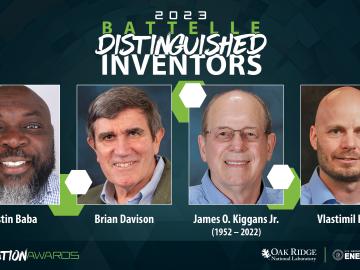
Four scientists affiliated with ORNL were named Battelle Distinguished Inventors during the lab’s annual Innovation Awards on Dec. 1 in recognition of being granted 14 or more United States patents.
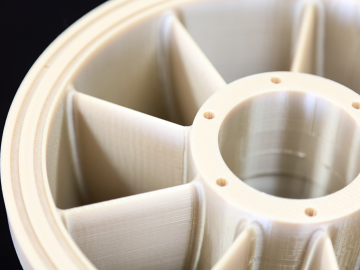
A new report published by ORNL assessed how advanced manufacturing and materials, such as 3D printing and novel component coatings, could offer solutions to modernize the existing fleet and design new approaches to hydropower.
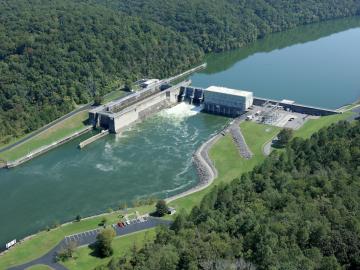
To further the potential benefits of the nation’s hydropower resources, researchers at Oak Ridge National Laboratory have developed and maintain a comprehensive water energy digital platform called HydroSource.
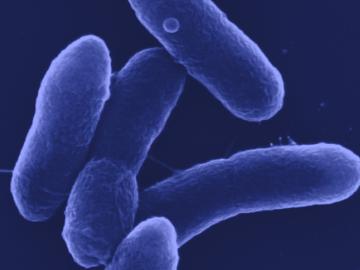
A research team led by Oak Ridge National Laboratory bioengineered a microbe to efficiently turn waste into itaconic acid, an industrial chemical used in plastics and paints.

Six scientists at the Department of Energy’s Oak Ridge National Laboratory were named Battelle Distinguished Inventors, in recognition of obtaining 14 or more patents during their careers at the lab.
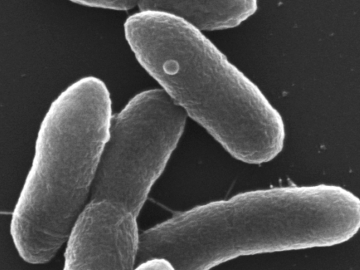
ORNL scientists have modified a single microbe to simultaneously digest five of the most abundant components of lignocellulosic biomass, a big step forward in the development of a cost-effective biochemical conversion process to turn plants into
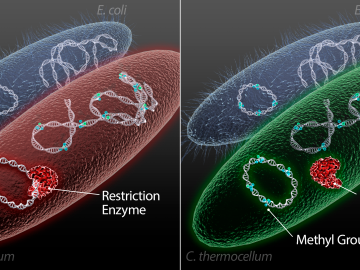
Scientists at the US Department of Energy’s Oak Ridge National Laboratory have demonstrated a method to insert genes into a variety of microorganisms that previously would not accept foreign DNA, with the goal of creating custom microbes to break down plants for bioenergy.




